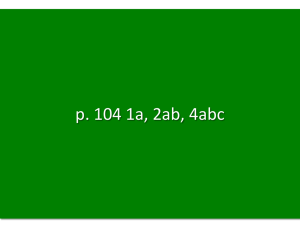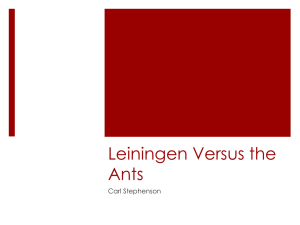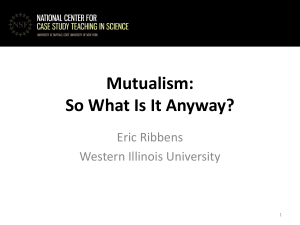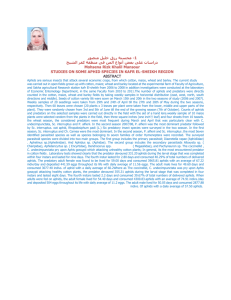Symbiosis Worksheet: Mutualism & Parasitism Examples
advertisement
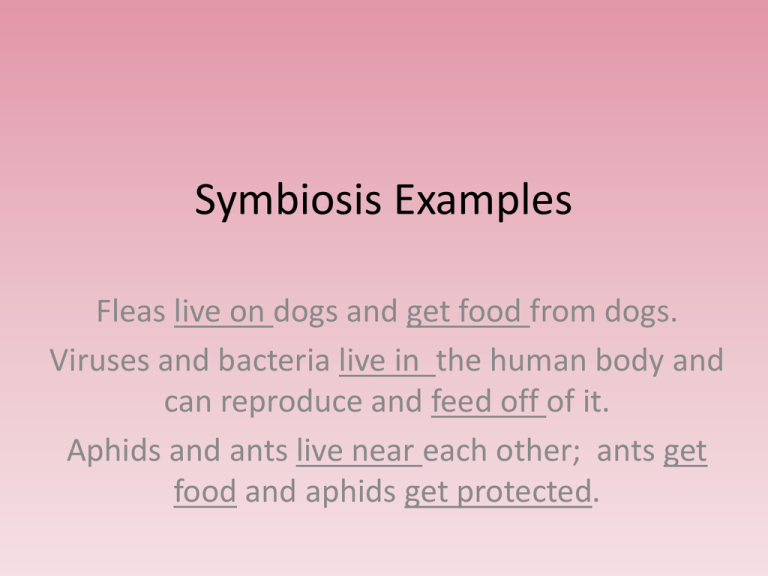
Symbiosis Examples Fleas live on dogs and get food from dogs. Viruses and bacteria live in the human body and can reproduce and feed off of it. Aphids and ants live near each other; ants get food and aphids get protected. Symbiosis – a relationship in which one organism lives on, near, or inside another and at least one of the organisms benefit. Draw a picture Describe what symbiosis is. Symbiosis Mutually Beneficial (mutualism) Observe the following picture examples of symbiosis-mutually beneficial relationships. Honey bees get nectar from flowers and the flowers get pollinated as the bees transport the pollen. Ants give aphids protection. Aphids give ants honeydew to eat. Ants and aphids have a mutually beneficial relationship. Tick birds and rhinos have a symbiotic, mutually beneficial relationship. The tick birds get food(ticks) on the rhino’s back and rhinos get irritating ticks removed by the birds. Write what you think symbiosismutually beneficial means. Mutually Beneficial (also called mutualism in the book) is a symbiotic relationship where both organism benefit. Draw a picture. Symbiosis-Parasitism Observe the following picture examples of symbiosis-parasitism. Mosquitoes bite people and get what they need to reproduce. People get a nasty bump. This is an example of Symbiosis-Parasitism. The human is the host and the mosquito is the parasite Dogs that have fleas is a symbiotic, parasitic relationship. The fleas get a shelter and food from the dog. The dog itches The dog is the host and the flea is the parasite. A vampire bat bites a cow and gets blood for nourishment. The cow gets an open sore that has to heal. The cow and the bat have a symbioticparasitism relationship. The cow is the host and the bat is the parasite. Describe symbiosis-parasitism. Parasitism is a symbiotic relationship in which one organism benefits and the other is harmed. Draw a picture.
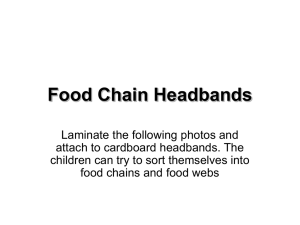
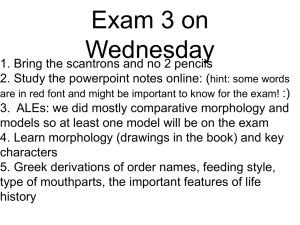
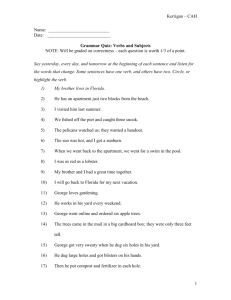
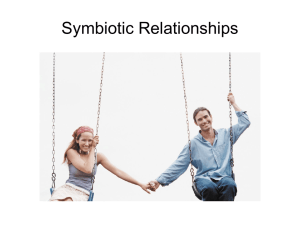
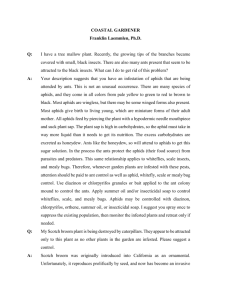
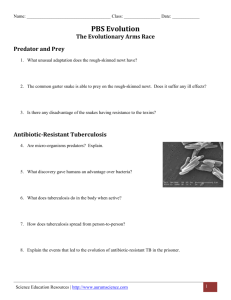
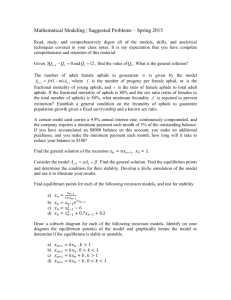
![Symbiosis[1]](http://s2.studylib.net/store/data/005449742_1-2c9de7b7b178f521480e9109673f342e-300x300.png)
